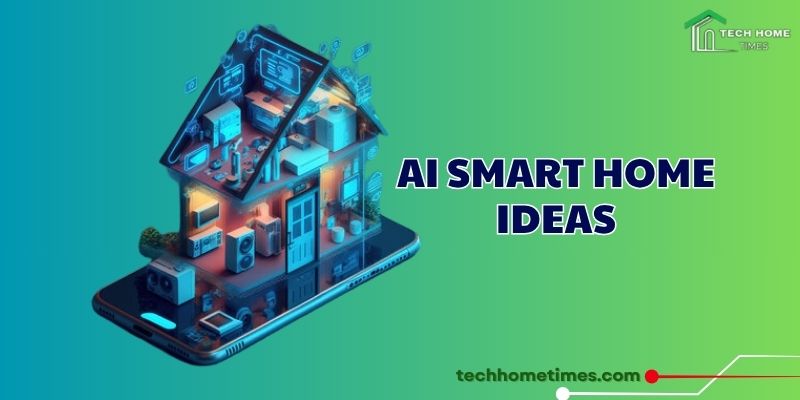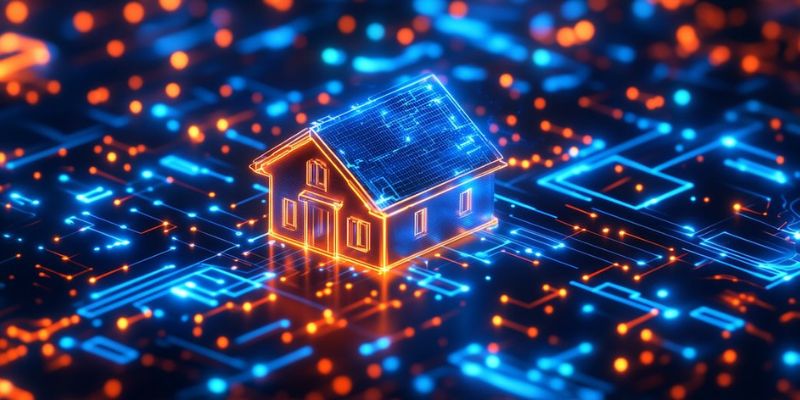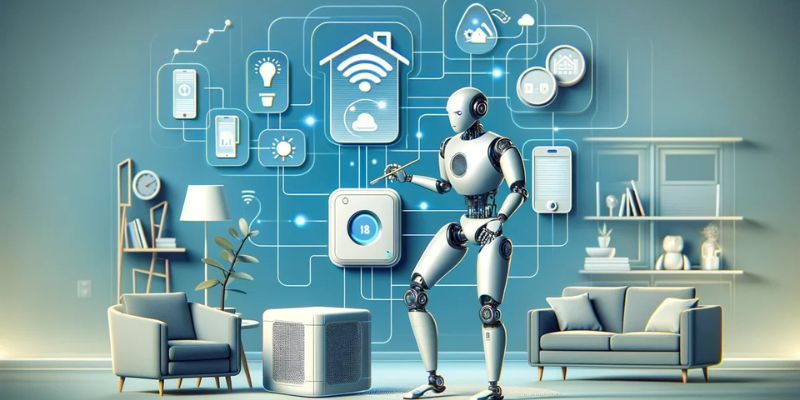AI Smart Home Ideas – Transform Your Living Space

AI smart home ideas – the aspiration for a home that intuitively understands and adapts to its inhabitants is no longer a futuristic dream. It’s becoming a tangible reality, that are fundamentally transforming our living spaces. This analysis will explore the evolution of the modern home, delve into specific AI-driven concepts that enhance every aspect of daily living, and highlight the profound benefits of this intelligent transformation.
Contents
The Evolution of the Modern Home

The journey of the modern home has seen remarkable advancements, moving from purely functional structures to increasingly connected and now, intelligently adaptive environments. Initially, homes were simply shelters, offering basic necessities. The advent of electricity brought lighting and appliances, significantly improving convenience. The latter half of the 20th century saw the rise of home automation, albeit in a rudimentary form—remote controls for TVs, programmable thermostats, and timed sprinklers.
The early 21st century ushered in the era of the “smart home,” characterized by interconnected devices controllable via smartphones. This allowed users to turn on lights from afar, monitor security cameras remotely, or adjust climate settings from anywhere. However, this phase was largely reactive and user-dependent. Automation relied heavily on rigid “if-then” rules or manual input. For instance, a light might turn on if motion was detected, but it couldn’t discern who was present, why they were there, or what time of day it was to adjust its response accordingly. This led to a fragmented experience, often requiring multiple apps and constant tweaking to maintain desired functionalities.
The current frontier in home evolution is marked by the deep integration of Artificial Intelligence. This shift propels the home beyond mere connectivity and automation into a realm of true intelligence. It transforms the living space from a collection of “smart” devices into a cohesive, learning, and proactive ecosystem. The implementation of sophisticated AI smart home ideas means the home can now not only understand commands but also learn routines, anticipate needs, and adapt to dynamic situations without constant user intervention. This represents a profound reimagining of our living spaces, making them intuitively responsive and genuinely transformative.
AI Smart Home Ideas – Enhancing Every Aspect of Living

The integration of AI fundamentally redefines how we experience our homes, embedding intelligence into every facet of daily life. These AI smart home ideas extend far beyond basic automation, creating truly adaptive and personalized environments.
Intelligent Environmental Control
Unlike simple programmable thermostats, AI-driven climate systems learn occupant preferences for temperature and humidity, not just on a schedule, but based on actual presence, time of day, and even individual comfort profiles. The AI integrates external data like weather forecasts, solar intensity, and utility peak pricing. It then proactively adjusts heating, ventilation, and air conditioning (HVAC) to maintain optimal comfort while maximizing energy efficiency.
AI-powered air quality monitors continuously assess indoor pollutants such as CO2, Volatile Organic Compounds (VOCs), fine particulate matter (PM2.5), and allergens. The AI understands the normal baseline and promptly reacts to spikes. If VOCs rise after cleaning, or PM2.5 increases during cooking, the AI automatically activates smart air purifiers, engages smart ventilation systems, or suggests opening specific windows. This intelligent oversight ensures a consistently healthy indoor atmosphere, mitigating respiratory issues and promoting overall well-being without conscious effort from occupants.
AI can monitor water usage patterns across various fixtures and appliances. It can detect abnormal consumption that might indicate a leak, automatically shut off water in emergencies, or even suggest optimal watering schedules for smart irrigation systems based on local weather and plant needs, conserving water and preventing costly damage.
Adaptive Lighting and Ambiance
AI elevates lighting beyond simple motion detection. It learns occupant routines, preferred light levels for different activities (e.g., reading, cooking, watching TV), and integrates with natural light sensors. Lights automatically adjust brightness and color temperature throughout the day—brightening in the morning to aid alertness, dimming and warming in the evening to support natural circadian rhythms. If the AI detects you’re settling in for a movie, it can automatically dim the lights, change the color temperature, and even close smart blinds. This creates a seamlessly adaptive and energy-efficient lighting environment.
Beyond static “scenes,” AI can dynamically create and adjust ambiance based on context and user presence. A simple voice command like “Relax” could prompt the AI to dim lights, play calming music, and adjust the thermostat to a comfortable setting, all tailored to your learned preferences and the specific room. The AI learns the nuances of “relaxing” for you and adapts the environment accordingly.
Smart Kitchen and Appliance Management
AI-powered smart refrigerators can track their contents, learn consumption patterns, and automatically generate grocery lists for depleted items. Some can even suggest recipes based on available ingredients and dietary preferences, simplifying meal planning and reducing food waste.
AI can optimize the performance of smart kitchen appliances. For instance, a smart oven might suggest the best cooking settings for a dish based on its contents and your preferred doneness, or an AI-powered washing machine might select the most efficient cycle based on load size and fabric type, saving energy and improving results.
The Benefits of AI-Driven Home Transformation

Implementing these AI smart home ideas leads to a transformative shift in daily living, yielding numerous tangible and intangible benefits.
- The most immediate and palpable benefit is the dramatic reduction in mental load and manual effort. The home anticipates needs and acts autonomously, freeing occupants to focus on more meaningful aspects of their lives rather than constantly managing their environment.
- AI-driven optimization across climate control, lighting, water usage, and appliances leads to significant reductions in utility bills and a minimized environmental footprint. Resources are utilized precisely when and where needed, eliminating waste.
- A living space that continuously adapts to individual preferences, environmental conditions, and promotes healthy behaviors (e.g., optimal sleep environments, clean air) fosters a profound sense of comfort and contributes to overall physical and psychological well-being.
- Intelligent anomaly detection, proactive threat mitigation, and predictive maintenance capabilities provide a significantly more robust and reliable layer of protection, offering unparalleled peace of mind for homeowners.
- The home learns and adapts to individual needs and preferences over time, becoming truly intuitive. This hyper-personalization creates a unique living environment that feels custom-tailored to each occupant, enhancing their connection to their space.
- An AI-driven smart home is inherently adaptive and evolutionary. It continuously learns, improves, and can seamlessly integrate new technologies and services as they emerge, ensuring your home remains cutting-edge and valuable over time without requiring constant overhauls.
To Tech Home Times, the integration of AI smart home ideas marks a pivotal moment in the evolution of our living spaces. These intelligent concepts are fundamentally transforming smart home from mere structures into intuitive, adaptive, and proactive environments that anticipate needs and simplify daily life.






